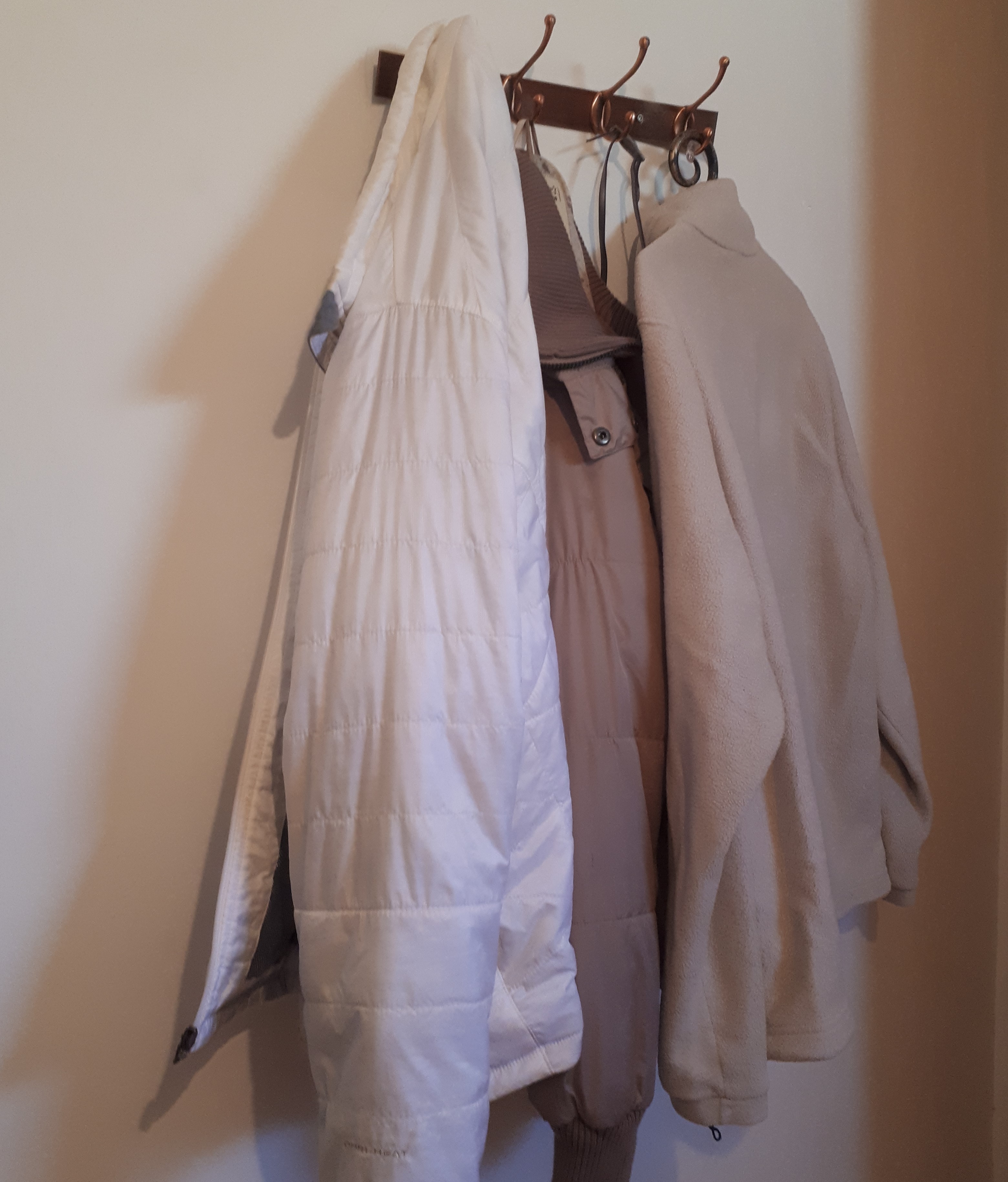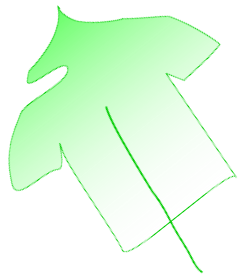Jackets and coats

Jackets and coats are especially important every year during cold or rainy weather. They help keeping us comfortable, warm and dry when it is cold or raining or even freezing outside. Light jackets are mostly worn at colder nights of otherwise warm season. Durability, warmth and comfort coats and jackets provide are very important, so are the ethical aspects of their production. Therefore it is worthwhile to invest some time to research and choose a cruelty-free products
Common materials and fabrics
Wool, cashmere, fur, down and leather are a frequently used components for making winter cloths, among them jackets and coats. There are some great synthetic, plant based and blended alternatives available. We encourage you to choose those alternatives instead of animal based products to reduce animal suffering in the farming industry.
Some coats and jackets use thermal insulation and waterproofing technology. For more info on this technology please check out our article - thermal and waterproof textile technology.
Buttons, zippers, decoration and other additions
Zippers are made of light metals and will always be vegan, just make sure your zipper doesn't have a leather pull attached to it. Buttons are mostly vegan too, although it is possible to find ones made of animal's horns – those are very rare and unreliable and manufactures won't typically use them but it is worth checking out. Decorations on the other hand can be made of animal based materials, for coats and jackets mostly leather and fur, like in the case of derriere patch on some denim jackets. Some types of decorations can also be glued using animal derived adhesives (even though synthetic glues are most common and are on the rise). It is hard to check the ingredients of clothing glues - best way being asking the manufacturer. There are a lot of fun styles and types of coats and jackets for men and for women, here we describe some of them in a little more details:
- Fur coats
- In our opinion one of the most cruelty promoting peace of clothing, along perhaps with leather jackets, as it is proudly displays skinned animal on wearer body like some kind of trophy and sign of wealth and success. As it sounds, fur coats are made primarily of different kinds of animal fur typically with some kind of inner fabric layer. It is expensive and gets even more expensive if the fur used belonged to a more 'exotic' animal. Please try to avoid this product and seek a vegan alternatives maybe of other kind altogether.
- Leather jackets
- Leather jackets are quite popular in modern times, unfortunately. There are cruelty-free vegan leather alternatives like faux/synthetic leather made of polyurethane, vinyl and other synthetic materials and plant based materials like those made from pineapple leaves, cork and more. Those vegan leather alternatives have at least as good a characteristics and properties as animal leather is able to provide. Please choose those alternatives for your outfit over real animal skins.
- Motorcycle jackets
- The most important aspect of motorcycle jackets is the safety it provides to a motorcyclist, fashion in this case only comes second. Motorcycle jackets are frequently produced from an animal leather. There are, however, great animal friendly motorcycle jackets available on the market, for example jackets made of faux/synthetic leather, those made of polyurethane, vinyl (PVC) or nylon. We encourage you to choose your jacket out of those options, rather then animal leather made ones.
- Trench coats
- Coat's outer layer is usually water resistant or water-proof, it can be made of animal based: leather or wool or vegan: cotton or synthetic materials. The under layer which provides the coat's warmth and thermal insulation can be made of wool, fur or cotton and synthetics. Even if your choose a vegan option for both coat's layers, there is important to pay attention on what a belt and buttons are made of. While buttons are most likely to be animal-free, the belt can easily be made of real animal leather.
- Fleece jacket
- Fleece itself is made of a synthetic fibers. Due to the fiber structure the fabric is really warm and that what makes it a great jacket. On itself fleece is animal friendly material, but sometimes (have to admit it's very rare) the jacket can be decorated using leather, fur or some wool. Also watch out for leather pull that sometimes gets attached to the zipper.
- Denim jacket
- It's a lighter type of jacket, denim fabric made from cotton fibers. It is important to keep your eyes out for fur or leather decorations, for fur or wool inner layers for warmer jacket types and leather derriere patch or leather pull attached to the zipper sometimes. All of those, if you like to have warmer or decorated jacket, have great vegan cruelty free alternatives. Please check the coat components list and make sure there is no animal made components.
- Puffer/down jackets and coats
- Commonly made of water-resistant synthetic outer layer fabrics like nylon or polyester and filling material made frequently of bird-down, yet there are lot's of cruelty-free options such as polyester or polyurethane filling. Some cruelty free options can even be made of recycled plastic bottles.
- Body warmer
- Body warmer is a sleeveless jacket and as such it can be produced from any materials coats are produced – from leather, to down-filled jacket, to wool and all animal-friendly options and alternatives described in the sections above. Please pay attention to the materials of it's components and choose the cruelty-free option whenever possible.
- Raincoats
- Raincoat are made to protect us from wind and water during rain. The material raincoats made of have to be water repellent, therefore best suited materials for the job are synthetics, like nylon, polyester, rayon and vinyl. Cotton and sometimes wool are also used, especially as a part of blended fabric. So the rare non-vegan option here is wool, please keep it in mind during your raincoat shopping.
Last word of advise
As we've been saying in other vegan clothing guides, the easiest way to ensure cruelty-free purchase is buying a vegan or vegan-friendly labeled products, but not all companies labeling their vegan products as such. Asking the stuff is a great option while buying in the store, if they don't know there is an option of contacting a manufacturer or reaching out to a vegan group for some advise. There are also some apps available for finding out if products are vegan.
In addition, there are other ethical issues that's important to keep in mind, such as human workers treatment and environmental sustainability. As a general rule, recycled and organic brands are more environmentally friendly and will offer better solution for ethical workforce treatment. Companies specializing on vegan or cruelty free textile production are also a good bet on ethical and environmental issues.
Consumer's awareness to those issues will push the industry one step further in solving them. Please keep those issues in mind during your next shopping trip for some winter clothes.
